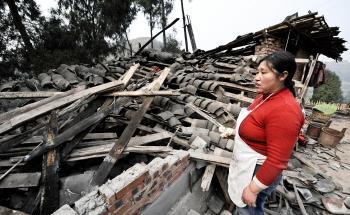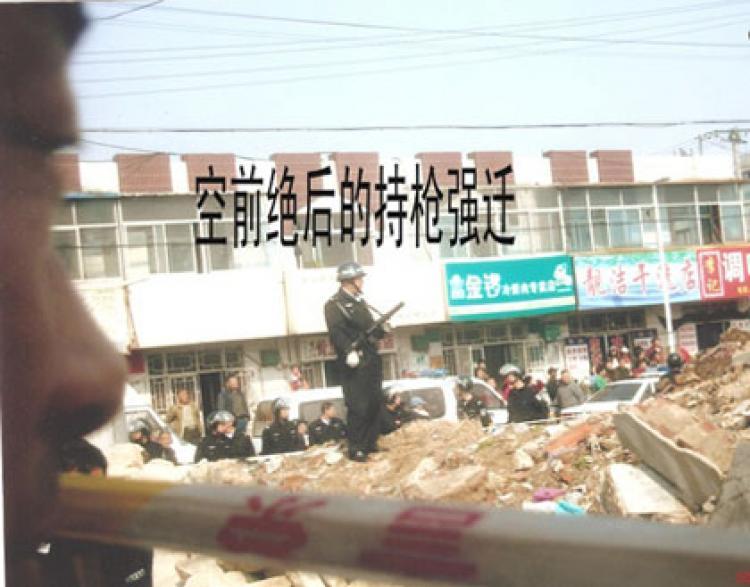A recently released report on China’s “rule-of-law” unveiled a large jump in crime rates and mass protests in 2009, as well as noting that one of ten mafia groups is headed by a Chinese Communist Party official. The report predicted that lawlessness will only get worse in 2010.
The blue book, the official title of which is the Annual Report on China’s Rule of Law No8 (2010), was jointly published by the Chinese Academy of Social Sciences (CASS) and the Institute of Law and Social Science Academic Press on Feb. 25.
As China’s highest professional academic institution, CASS also plays an ideological role, propagating the party’s policies and principles under China’s present political system, according to Dr Zhang Boshu a political philosopher and constitutional scholar who once worked for the CASS.
The report attributes the rising crime rate and the number of mass protests to rising social conflicts and the gap between rich and poor. It states that the number of crimes in the first 10 months of 2009 was 20 percent more than during the same period in 2008.
The report blamed the efforts of local authorities to “maintain social stability” as being one of the factors leading to mass protests. But the report did not touch on the issue of forced demolitions backed by local authorities, which have created swathes of social conflicts across the country.
The report also used a separate section to discuss mafia crimes uncovered in the “hitting the black” campaign in southwest China’s Chongqing city. It points out that particular types of “White, Black, Red” mafia groups have formed in China. “White” refers to legitimate companies that use “Black” or mafia means to do business and with protection from government officials identified as “Red.” Red is the symbolic color of the Chinese Communist Party.
Provincial-level crackdown
The “hitting the black” campaign has itself been criticized as a politically motivated Cultural Revolution-style movement. It was started in June 2009 by the high-profile Bo Xilai, communist party chief of Chongqing. The “black” in the name usually refers to gangsters.
State-run media have lauded it as a means of cracking down on gangsters and local corruption, while critics view it as illegal and unconstitutional. Some critics also argue that it actually serves to strengthen corruption within law enforcement circles.
The campaign has prompted the most large-scale crackdown on gangsters and corruption in the history of Chongqing since 1983, according to the deputy chief of the city’s Public Security Bureau.
An article in the Guangzhou-based Southern Metropolis Daily on Feb. 3 reported that the campaign resulted in 10,372 people arrested in the city and over 1,000 sentenced to forced labor between July 10 and Sept. 30, 2009. The article, titled “Waves of Forced Labor Detentions Amidst the ‘Hitting the Black’ Campaign,” describes how the campaign has resulted in an inundation of the detention centers in Chongqing.
According to the blue book report, nearly 10 percent of mafia groups are organized and headed by government officials. These mafia groups have stepped into various industries and formed monopolies to maximize profits.
Because law enforcement has become an umbrella of protection for the mafia, young people and the socially weak have been forced to resort to joining the mafia voluntarily in an effort to seek protection.
Ong Yew Kim, Professor of China University of Political Science and Law, told BBC China that during the past two years the Chinese legal system has not been developed or improved. “Instead, it has had major setbacks.”







